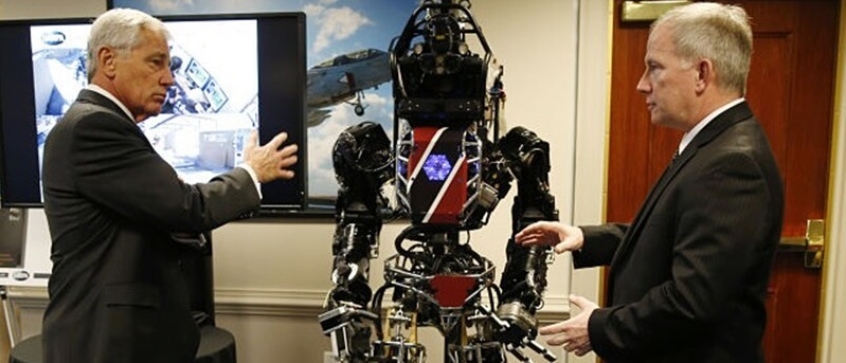
Programmable microbes? Humans turning into cyborgs? People extending or even living beyond their life spans? These all sound like things you can see in a science-fiction movie, but the US Department of Defense is actually taking steps to turn these things into reality.
Since its foundation in July 2014, the Pentagon's Biological Technology Office (BTO) has been making giant steps in engineering, information sciences and biotechnology to gain technological advantage, particularly in warfare.
Neurologist Geoffrey Ling, head of this new office, said the Pentagon's researches are looking at developing technologies that are previously unimaginable, such as robots and aircraft being controlled by the human mind, or human memories being downloaded into hard drives.
"It's abso-posi-frickin-lutely going to happen. The next 20 years are going to make our heads spin, because we've already crossed over into that realm," Ling said.
At present, Ling and the rest of the BTO are developing ways to give American soldiers, sailors, airmen and Marines "effective immunity" in the battlefield.
As part of the five-year Autonomous Diagnostics to Enable Prevention and Therapeutics (ADEPT) program, the Pentagon office is also finding ways to give American soldiers the capability to self-diagnose while deployed in the field, as well as to preserve self-collected bio specimens more effectively.
Through its Biochronicity program, meanwhile, the BTO, which is part of the Defense Advanced Research Projects Agency (DARPA), is trying to develop technologies that will defy the effects of time on human physiology.
Another interesting program of the BTO is called the "Biological Robustness in Complex Settings (BRICS)." This program aims to "develop the fundamental understanding and component technologies needed to engineer biosystems that function reliably in changing environments."
The relatively young office is also currently trying to combine the fields of biotechnology and neuroscience to try to minimize the effects of stress on the human body.
Some groups, however, have expressed concern about the ethics of BTO's current studies, fearing that these may lead to more conflicts in the future.
"Some of these technologies are absolutely fascinating and intriguing and hold all this promise for good, but they're very close to being weaponised easily," bioethicist Jonathan Moreno from the University of Pennsylvania in Philadelphia said.













